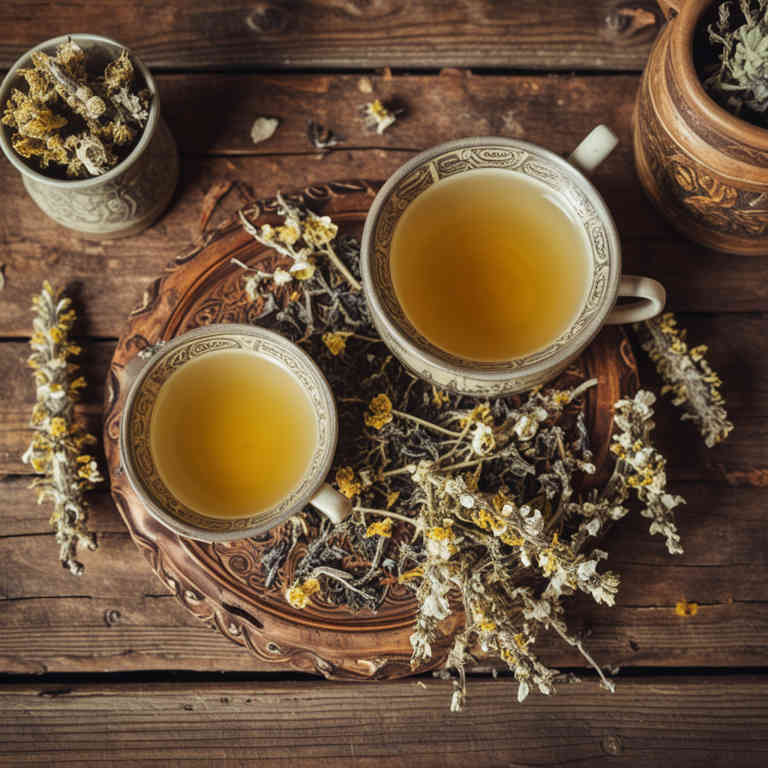Verbascum thapsus tea for medicinal use

Verbascum thapsus tea is a herbal preparation made from the dried leaves and flowers of the mullein plant, commonly known as common mullein.
It has been traditionally used in herbalism for its soothing and anti-inflammatory properties. The tea is often consumed to help alleviate respiratory issues such as coughs, bronchitis, and asthma due to its expectorant and demulcent effects. It may also be used to support skin health and as a mild sedative.
This preparation is typically prepared by steeping the dried plant material in hot water for several minutes.
Uses
Verbascum thapsus tea has been used to treat respiratory conditions, skin irritations, and digestive issues for centuries.
Historically, it was valued in ancient Egypt and Greece for its healing properties, often used to soothe coughs and clear congestion. In traditional medicine, particularly in European herbal practices, it was applied topically to reduce inflammation and promote wound healing. Modern research suggests it may have anti-inflammatory and antioxidant effects, supporting its use in contemporary herbal remedies.
Today, it is still consumed as a tea to support overall wellness and aid in detoxification.
Benefits
Verbascum thapsus tea has health benefits such as reducing inflammation, supporting respiratory health, and promoting skin healing.
It is rich in mucilage, which can soothe irritated tissues and aid in digestion. This herbal tea is also known to help alleviate symptoms of coughs and sore throats due to its expectorant properties. Additionally, it may contribute to detoxification and support the immune system.
Verbascum thapsus tea is often used in traditional medicine for its calming and healing effects on the body.
Constituents
Verbascum thapsus tea active constituents include mucilage, flavonoids, tannins, and saponins.
These compounds contribute to the tea's soothing and anti-inflammatory properties. Mucilage helps in coating and protecting the mucous membranes, while flavonoids act as antioxidants. Tannins provide astringent effects that may aid in reducing inflammation.
Saponins are known for their potential to support immune function and digestive health.
Preparation
To make Verbascum thapsus tea, start by gathering fresh or dried leaves and flowers of the common mullein plant.
Rinse the plant material thoroughly to remove any dirt or debris. Place the cleaned herbs in a heat-resistant container and pour boiling water over them. Let the mixture steep for 10 to 15 minutes to allow the beneficial compounds to infuse into the water.
Strain the tea into a cup and enjoy it warm, optionally adding a small amount of honey or lemon for flavor.
Side Effects
Verbascum thapsus tea may lead to gastrointestinal discomfort, including nausea, vomiting, and diarrhea, due to its high mucilage content.
It may also cause allergic reactions in individuals sensitive to the plant's compounds. Prolonged use could potentially affect kidney function, as the tea contains compounds that may be processed through the renal system. Some studies suggest it may interact with medications, particularly those affecting the liver or kidneys.
It is important to consult a healthcare professional before using this preparation, especially for individuals with pre-existing medical conditions.